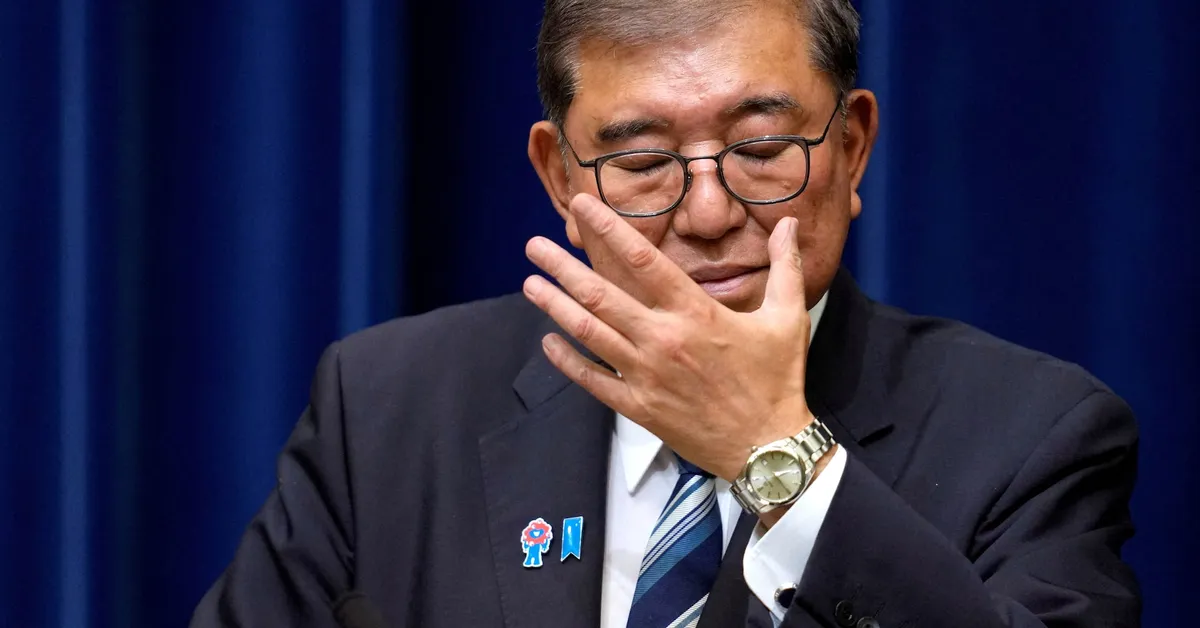
On September 8, 2023, Japan's financial landscape was shaken with the resignation of fiscal hawk Prime Minister Shigeru Ishiba. This unexpected development is anticipated to trigger further volatility in the nation's stressed government bond market and soaring stock indices. Currently, yields on super-long Japanese government bonds (JGBs) are hovering near record highs, fueled by global fiscal deficit concerns and domestic political pressures surrounding Ishiba's leadership.
Japan's Nikkei share gauge has recently retreated from a record high achieved last month. Market analysts are now shifting their focus to potential successors for Ishiba and the possibility of a return to the economic policies known as Abenomics. These policies were championed by the late Shinzo Abe, who implemented substantial fiscal stimulus and unprecedented monetary easing strategies during his tenure.
According to Naka Matsuzawa, chief macro strategist at Nomura Securities in Tokyo, the initial market reaction could lead to a bear-steepening of JGB yields, a weaker yen, and a slight uptick in stock prices. This response reflects the market's anticipation of increased risks associated with an Abenomics-like reflationary policy, which is gaining traction due to Ishiba's resignation.
Ishiba's relatively conservative fiscal approach has been perceived as beneficial for the JGB market, where yields remain low in comparison to global standards. However, the country's staggering debt—approaching 250% of its gross domestic product (GDP)—raises significant concerns. This figure represents the highest debt-to-GDP ratio in the developed world. In the past week, the finance ministry reported that Japan's budget requests for the next fiscal year have reached a record for the third consecutive year.
Following Ishiba's resignation, analysts predict that super-long bond yields are likely to rise. Katsutoshi Inadome, a senior strategist at Sumitomo Mitsui Trust Asset Management, noted the increasing pressure on yields due to ongoing uncertainties regarding fiscal conditions.
Last week, the yield on 30-year JGBs surged to an unprecedented 3.285%, while the 20-year yield reached 2.69%, marking the highest levels since 1999. This escalation in yields signifies increasingly higher borrowing costs for the government, corporations, and the general public.
The JGB market experienced a setback in mid-July when Ishiba's coalition suffered a significant defeat in the upper house elections. Opposition parties advocating for tax cuts and increased public spending gained ground, leading to speculation about internal pressures within Ishiba's Liberal Democratic Party (LDP) for his resignation. This speculation culminated in Ishiba's announcement that he would take responsibility for the election losses and initiate an emergency leadership vote within the LDP.
Among the leading candidates vying for the LDP leadership is Sanae Takaichi, who has been a proponent of maintaining ultra-low interest rates to foster economic recovery. Takamasa Ikeda, a senior portfolio manager at GCI Asset Management in Tokyo, suggested that Takaichi's potential leadership could positively influence the stock market, as she aims to enhance government spending.
Japan's benchmark Nikkei share index reached a record high of 43,876.42 on August 19, buoyed by optimism surrounding corporate governance reforms and investments in artificial intelligence. However, it closed at 43,018.75 on Friday, and analysts from a recent Reuters poll predict the index could ease to 42,000 by the end of the year.
The Bank of Japan (BOJ) is currently on a gradual path to normalize interest rates and reduce its holdings of JGBs, following the conclusion of a decade-long period of unconventional stimulus last year. The trajectory of these policies, particularly in the upcoming BOJ meetings, could be disrupted by Ishiba's departure, as noted by Rong Ren Goh, a Singapore-based portfolio manager for Eastspring Investments.
Market participants are increasingly concerned that the BOJ may lag behind in addressing economic challenges, prompting them to closely monitor the upcoming policy meetings in September and October. These meetings will play a critical role in shaping the future of JGB yields and the value of the yen.
Reporting by Junko Fujita, Rae Wee; Writing by Ankur Banerjee; Editing by Susan Fenton.